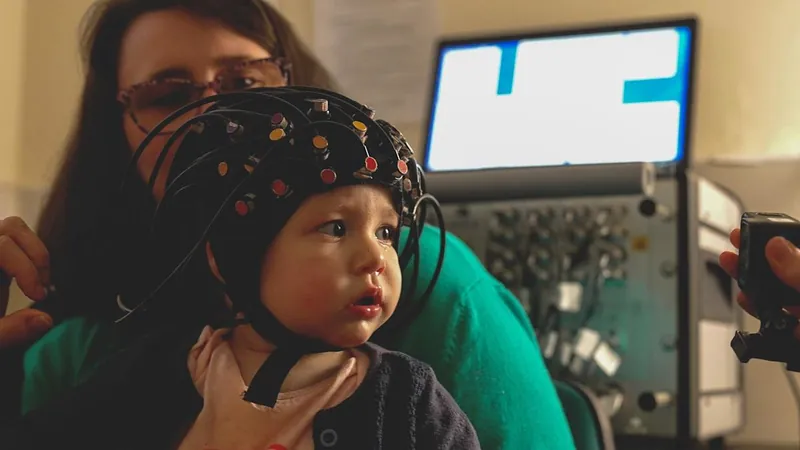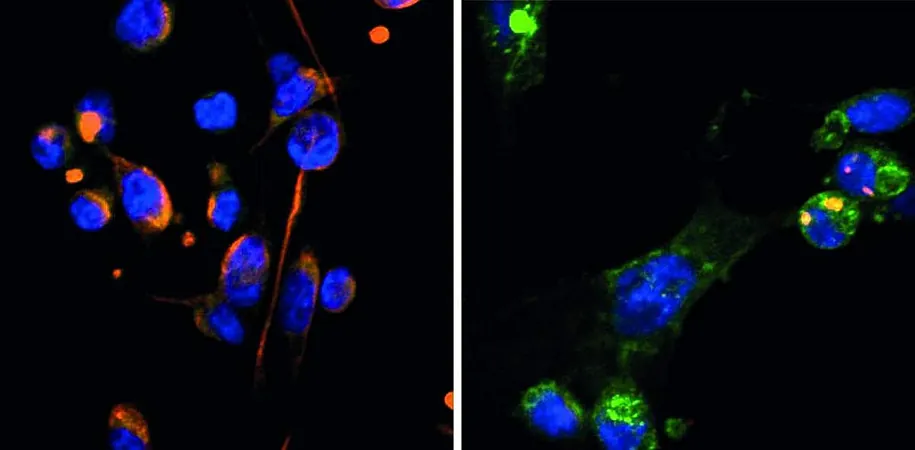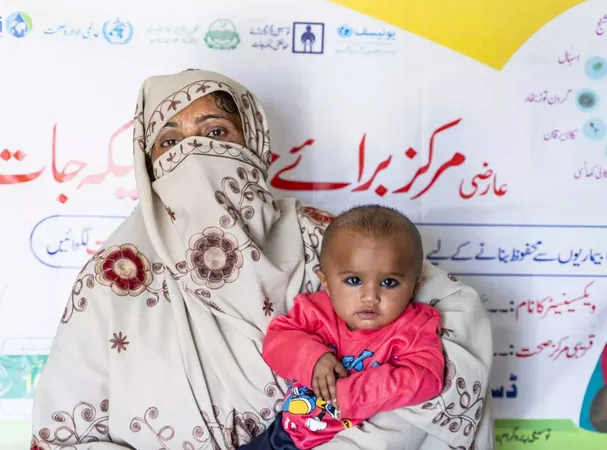
Unlocking the Secrets of Toddler Brains: Groundbreaking Research Underway
2025-04-10
Author: Wei Ling
Meet two-year-old Henry, enchanted by an interactive game on an iPad that seems simple but is far more sophisticated. With each tap on a smiley face, he transforms it into a dancing cartoon. This isn't just playtime; it's a crucial experiment to examine a key developmental skill in toddlers—their ability to control impulses.
Henry's journey is being closely monitored by researchers at the University of Bristol who are investigating how young children develop essential cognitive skills like attention and learning capability. Equipped with a high-tech cap that measures brain activity, Henry's gameplay helps scientists chart how he makes decisions.
The groundbreaking study tracks hundreds of children from six months to five years old to understand when these critical skills emerge. The uniqueness of this project lies in its lineage: the mothers of 300 participants are part of a long-term study that has been documenting their health and experiences since the 1990s.
This trove of data creates an unparalleled vantage point to connect children’s current brain development with their parents' genetics and backgrounds, according to lead researcher Dr. Karla Holmboe. Understanding when vital skills develop will aid in providing support at earlier stages, which can significantly affect a child's future success.
Dr. Holmboe emphasizes the importance of this developmental phase, stating that children who struggle early on often continue to face difficulties throughout their lives. The research aims to intervene sooner, giving children the tools they need to thrive.
During these engaging lab sessions, toddlers like Henry and his peer Jackson are put through a variety of interactive games designed to challenge their cognitive functions. For instance, Jackson’s task involves recalling which pots contain hidden stickers—bridging working memory skills that are foundational for problem-solving and learning.
The study also delves into language development and processing speed, tracking how swiftly children absorb new information. This innovative research builds upon the decades-old Children of the 90s project, which has already provided invaluable insights into child health and development.
As the researchers gear up to assess formative abilities, they aim to follow the children until they're ready for school. Emily, a participant from the original study now watching her son Henry, reflects, "It’s fascinating to see our lives interlink in this way. I've been part of this since birth, and I believe it can help shape future generations."
Ultimately, Dr. Holmboe and her team are not just looking at toddlers like Henry and Jackson; they are building a foundation for a brighter future. "When children start school, many skills have already formed. This research is about setting the stage for lifelong success," she notes.
With smiles and snacks filling the lab, these young subjects are not just participants— they're paving the way for breakthroughs that could transform how we understand early childhood development.


 Brasil (PT)
Brasil (PT)
 Canada (EN)
Canada (EN)
 Chile (ES)
Chile (ES)
 Česko (CS)
Česko (CS)
 대한민국 (KO)
대한민국 (KO)
 España (ES)
España (ES)
 France (FR)
France (FR)
 Hong Kong (EN)
Hong Kong (EN)
 Italia (IT)
Italia (IT)
 日本 (JA)
日本 (JA)
 Magyarország (HU)
Magyarország (HU)
 Norge (NO)
Norge (NO)
 Polska (PL)
Polska (PL)
 Schweiz (DE)
Schweiz (DE)
 Singapore (EN)
Singapore (EN)
 Sverige (SV)
Sverige (SV)
 Suomi (FI)
Suomi (FI)
 Türkiye (TR)
Türkiye (TR)
 الإمارات العربية المتحدة (AR)
الإمارات العربية المتحدة (AR)